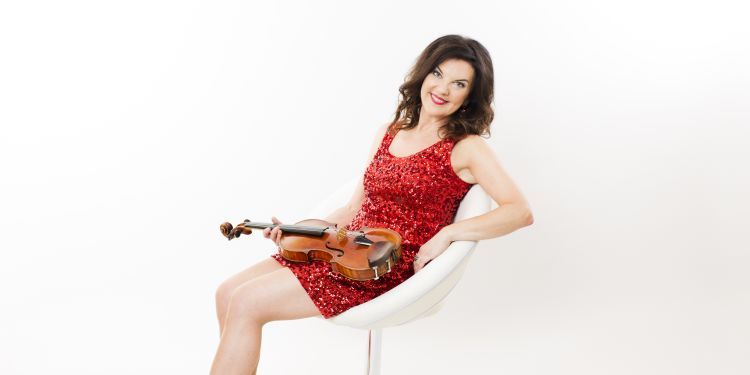Breadcrumb navigation
Guildhall Alumni Questions: Tasmin Little

.
Tasmin Little (Violin 1986) has played with many of the world's greatest orchestras across every continent. Her multi-award winning and varied career encompasses international concerto and recital performances, masterclasses, workshops and community outreach work. In 2012, Tasmin was appointed an OBE in the Queen's Diamond Jubilee Birthday Honours List, for Services to Music.
We caught up with Tasmin to find out her favourites memories of Guildhall, from winning the Gold Medal, to leading orchestras and facing daunting masterclasses.
Why did you choose Guildhall?
I chose Guildhall for quite a few reasons. The main motivation was because I had studied at the Menuhin School for ten years and I had a wonderful teacher, Pauline Scott. Pauline also taught at Guildhall and I very much wanted to continue with her. There was also a great general musicianship teacher called Hans Keller teaching at Guildhall and he was an incredible musical mind. In addition to the teaching, many friends at the Menuhin School in previous years had gone to Guildhall and had a really good time, so it was a good and logical progression for me.
What are your favourite memories of the Music course?
I went from a very small focused environment to a college with real breadth. I wanted to immerse myself in everything. I think I was in every single day to Guildhall for something, orchestral rehearsals, violin lessons, quartets, general musicianship. I was a very motivated student and was always going somewhere or doing something. We experienced so many different musical settings and styles.
In the third year, I was leading the symphony orchestra and the opera orchestra. I loved how the different orchestras brought everyone together. My most exciting experience was winning the Gold Medal. Progressing through those rounds and finally getting to the finals was such a wonderful experience. I chose to play the Brahms concerto with the orchestra and was totally supported by the ensemble, who at this point was full of my friends – it felt as though this was ‘my’ orchestra and that felt really special.
How did you balance your studies and performances outside of the School?
I have really positive memories of my time at the Guildhall and I felt very supported by the staff. At this point I had a few solo concerts, and I was always filling in outside engagement forms and taking them to the Head of Music. I was never made to feel I should refuse any of these opportunities, which was great because I needed these opportunities to support myself financially and begin to make a name for myself.
We had marvellous masterclasses from people outside the school. Sylvia Rosenberg came in my final year and that was a life changing experience for me. She really ‘got’ me, and was able to give me something unique and memorable. Some of the masterclasses weren’t such a positive experience, but it was a lesson in taking criticism when it’s not given kindly! You’ve got to be able to pick yourself up and not let it faze you. This was a great lesson to apply in the professional world.
Are you still in touch with anyone from the School?
As I have moved through my career, I have met so many graduates in the work force and I am still in touch with lots of them.
What advice would you give to students and alumni for success in life after Guildhall?
To Guildhall students or prospective students, I would say that authenticity is the most important thing. If you are auditioning, the teaching staff want to see who you are. If you are graduating, people don’t want to see a robot, they want to see musical character and personality. Authenticity and sincerity is very important. People want to hear your unique voice. Your interpretation has to be true and authentic.
Would you like to feature in the next alumni Q&A? Get in touch at alumni@gsmd.ac.uk